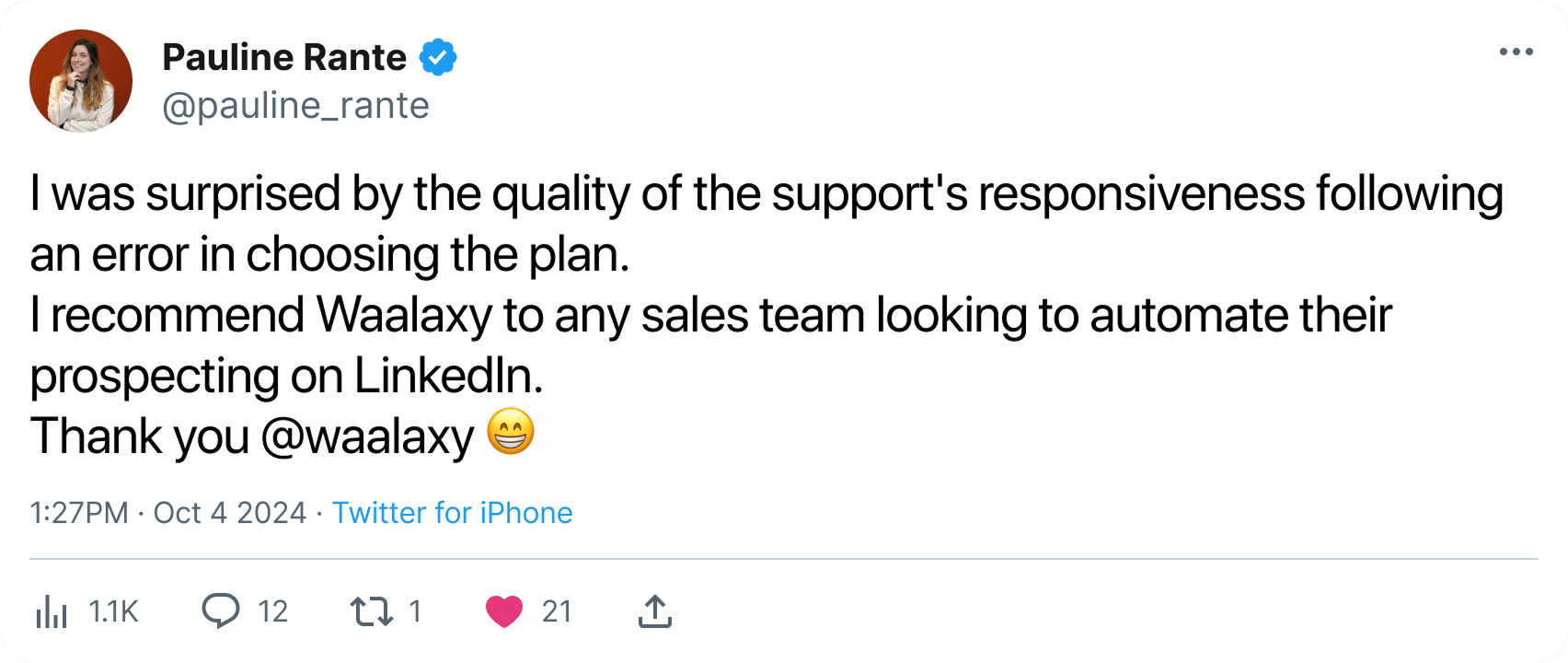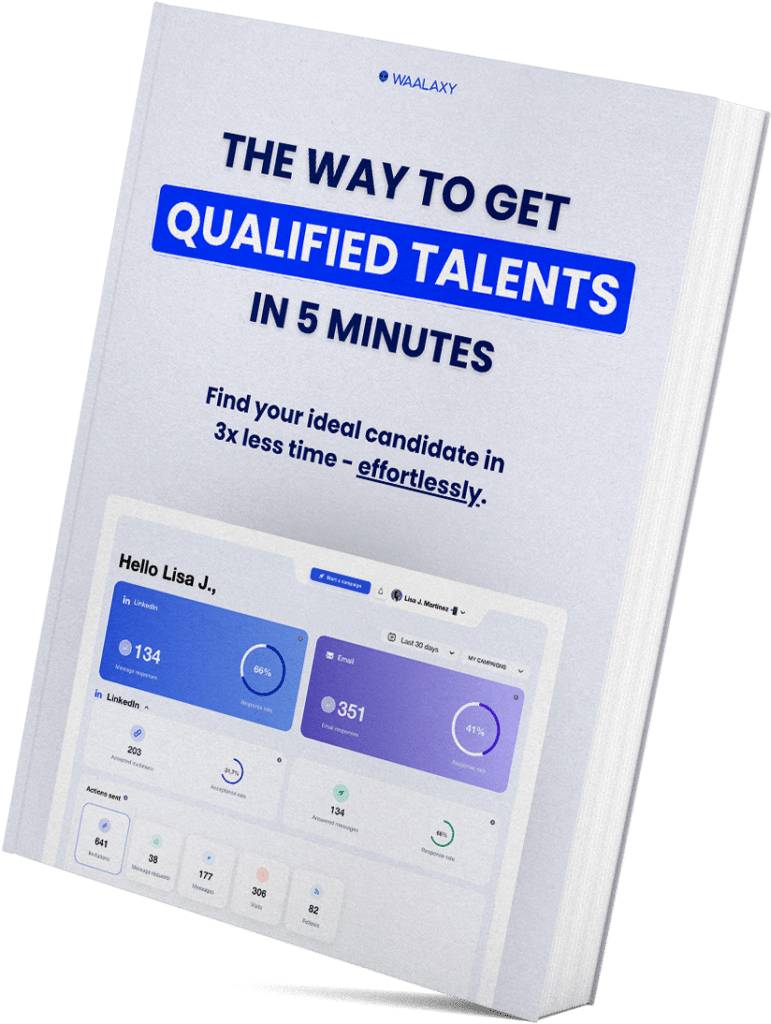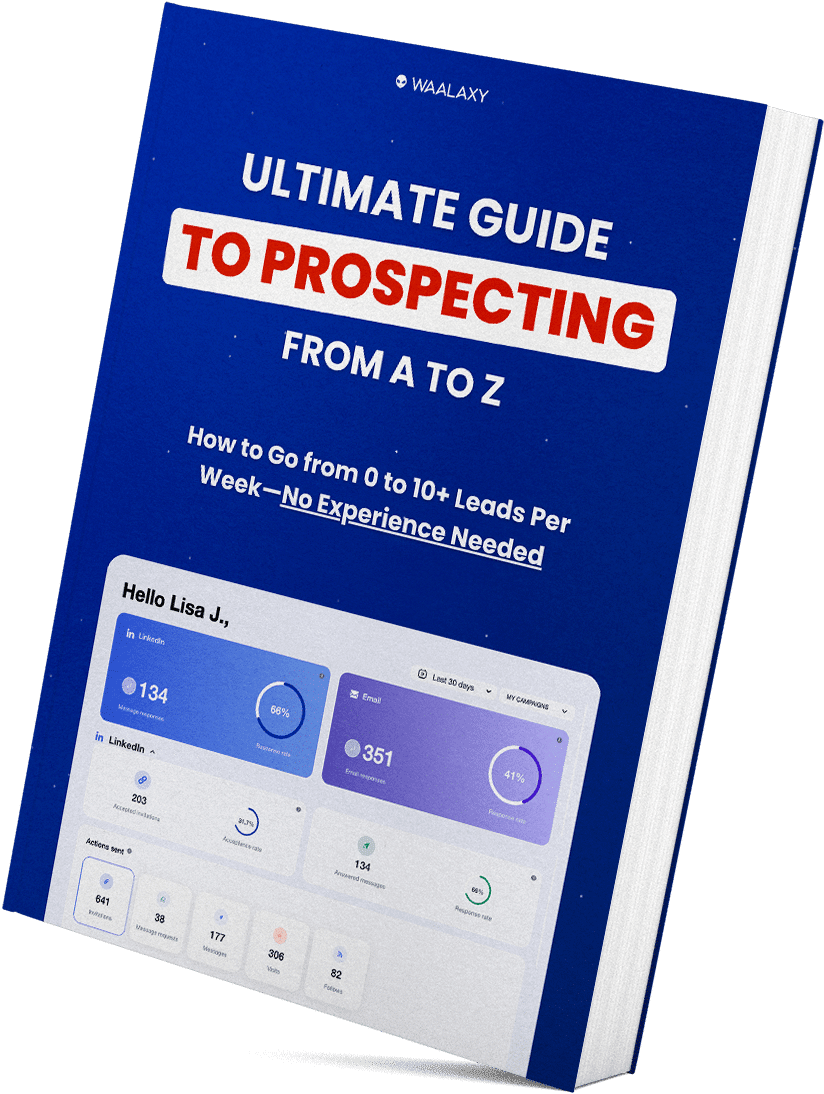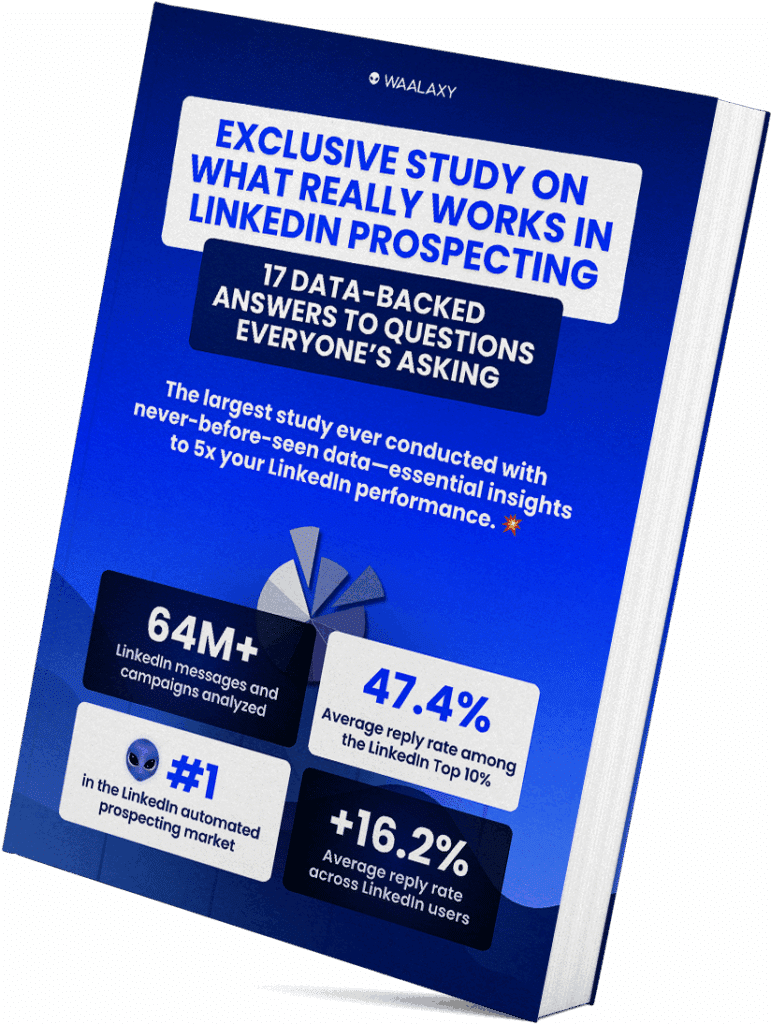As you saw in the title, today we are going to talk about one to one marketing. 👀 Without further ado, here are the different points we’re going to cover:
- The definition of one-to-one marketing.
- The different personalization strategies.
- 4 steps to successful one-to-one marketing.
Are you ready? Good thing we are ready to help you! 🔥
One-to-one marketing definition
Let’s get into the nitty-gritty 🗡️ of the topic.
One-to-one marketing is a personalized marketing strategy, also known as one-to-one marketing, which aims to create individual relationships with each potential or existing customer.
Unlike traditional marketing, which addresses a broad target audience, one-to-one marketing involves targeted and personalized communication with each customer. It is based on the collection of data on each customer, such as :
- 💟 His needs.
- 🛍️ His buying habits.
- 🖥️ Her online behaviors.
This data is then used to create personalized marketing campaigns, such as emails, text messages, or even targeted ads. This allows businesses to use this data to deliver personalized promotions and most importantly, unique customer experiences. 🥰 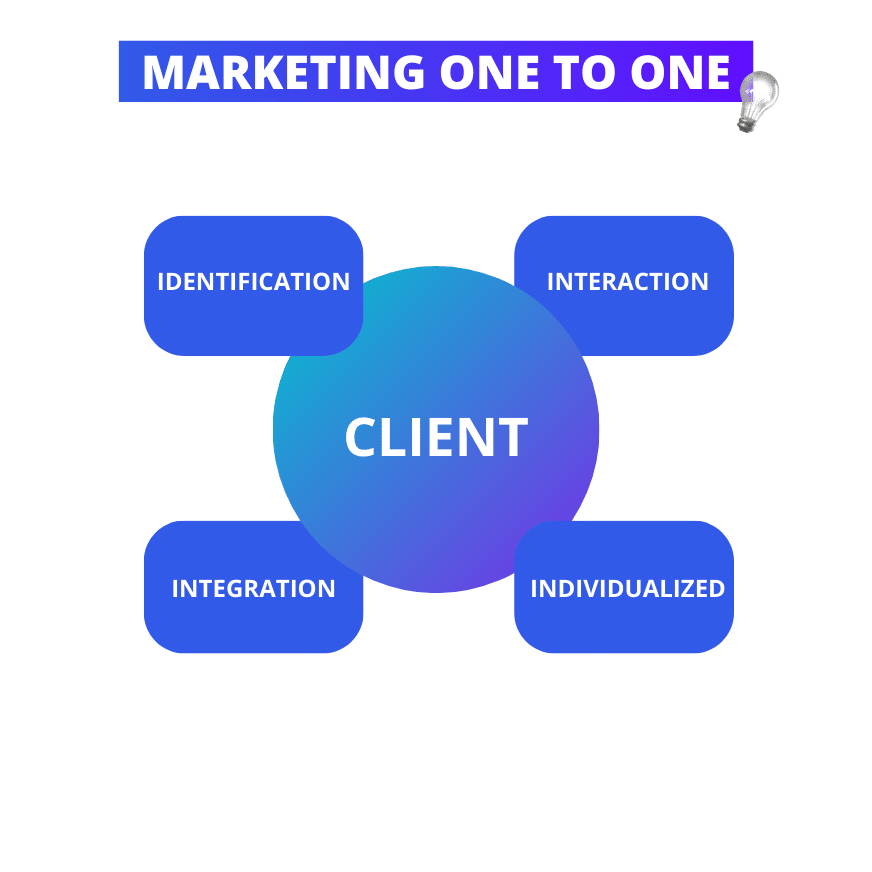
Also, one-to-one marketing is often used to improve client loyalty by creating deeper approach and more meaningful relationships with consumers. This is because they feel more understood and are more likely to remain loyal to real companies and recommend their products or services to others. 🔥
Advantages and disadvantages
Let’s find out some of the pros and cons of using one-to-one marketing: ⬇️
- Increased loyalty: by personalizing communication promotions, you create closer relationships with customers, increasing the likelihood of repeat purchases.
- Improved customer experience: by offering personalized ecommerce website offers and promotions, you provide a more enjoyable shopping experience for each customer.
- Increased sales: Customers are more likely to make purchases when they feel understood and propositions are tailored to their needs and preferences.
- High cost and time: this marketing can be costly in terms of time and resources for a brand.
- Privacy risk: consumers may be reluctant to share personal information, especially if businesses have not clearly explained how they are using this data.
Difference between one-to-one and one-to-many marketing
Did you know that one-to-one and one-to-many marketing are two very different approaches to marketing? That’s what we’ll look at together. 👇🏼
- One-to-one marketing ➡️ Personalized marketing that aims to create one-to-one relationships with each potential or existing customer, focusing on the customer experience, collecting specific data on their needs, purchase behaviors and online habits.
- One-to-many marketing ➡️ Mass marketing that aims to reach a large and heterogeneous target audience, with the goal of reaching a large number of people at the same time, using mass communication channels, such as TV ads, email, newspaper ads or street posters.
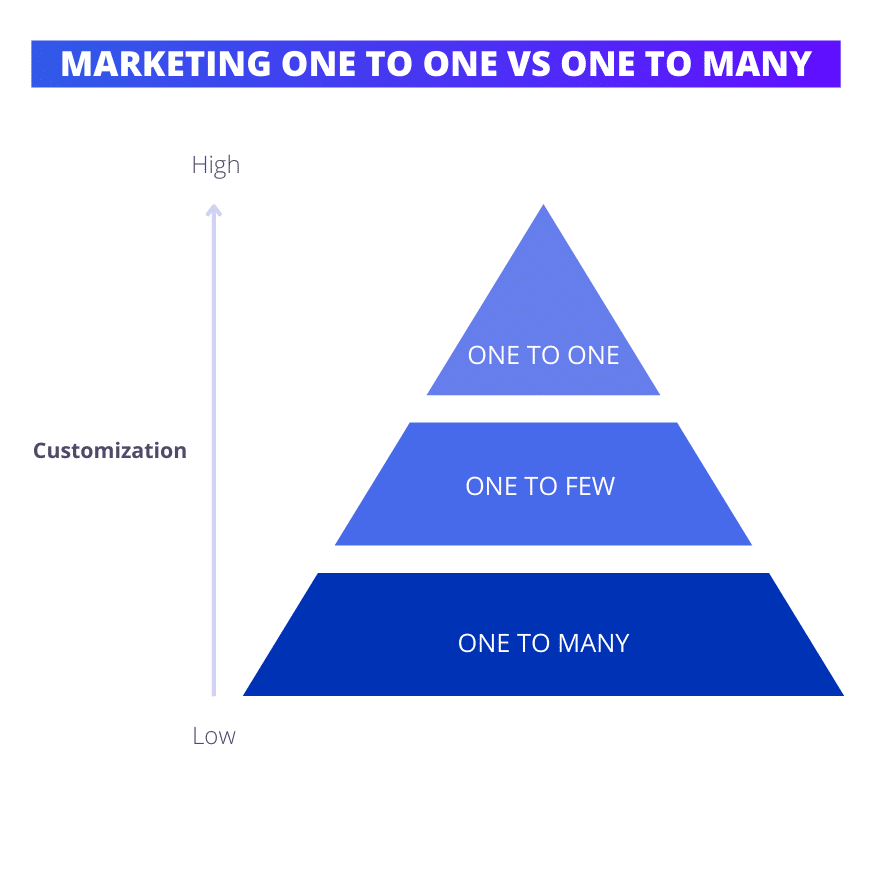
Roughly speaking, the main differences between these two marketings come down to personalization, purpose and communication channels. 💭
The different personalization strategies
Personalization is a key element 🗝️ of this marketing because it allows businesses to create unique experiences (we all dream of that, after all…) 🪄. There are a multitude of personalization strategies, but today we’re going to focus on 3 in particular, let’s get started! ⬇️
The one-to-one name marketing strategy
This strategy involves personalizing messaging and communications using the customer’s name. You can definitely use specific data such as first and last name and title to personalize messages. For example, on our LinkedIn and InMails prospecting and automation tool, Waalaxy, you can insert variables such as last name, first name and company name! 👽

This strategy can help build a more personal relationship with the customer and strengthen loyalty (of the user, of course). 💘
The geographic strategy
This other strategy involves personalizing the message or product and services offer based on the customer’s location. 📍
Indeed, brands can use location data such as address, zip code or even region in order ⚽ to personalize messaging and deals. This is the case of the trendy beverage company with a mermaid as its logo 🧜🏼♀️, I named… Starbucks!
In fact, Starbucks personalizes the beverage offering based on the location of each store. For example, in areas with warmer weather ☀️, the coffee brand may offer iced drinks or smoothies, while in colder areas 🥶 they may continue to offer hot drinks and heartier dishes. 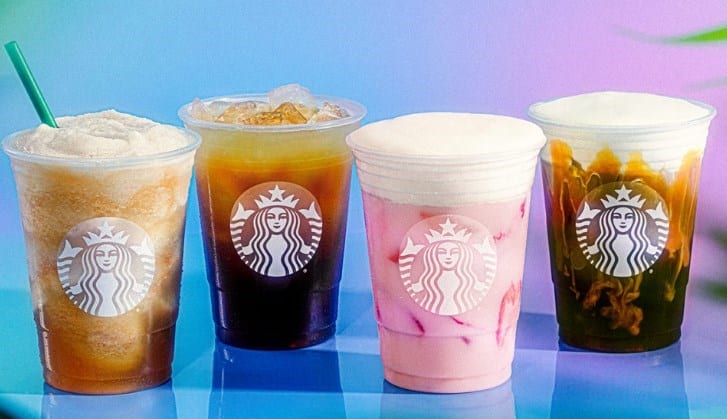
By executing this strategy, Starbucks is building customer loyalty by creating closer connections with customers and providing a more enjoyable shopping experience. 🥰
The product recommendation strategy
Last but not least, the product recommendation strategy involves recommending products that are similar or complementary to those the client is looking for or has already purchased. Some companies use recommendation algorithms to suggest relevant products for each customer.
Let’s take the example of Amazon, which is, let’s face it, one of the world leaders in this strategy! On a search for pillow mist, it suggests other complementary products, frequently purchased together. ⬇️

But that’s not all! Just below, Amazon offers me other products similar to my previous searches. 👇🏼

This strategy helps increase sales and build customer loyalty. 🦋
4 steps to successful one-to-one marketing
Now that you know more about one-to-one marketing, we wanted to suggest 4 steps to achieve perfection 🪞 your one-to-one marketing. Let’s get started! ⬇️
1) Perform a customer segmentation
The first step to success is to perform a customer segmentation. 🍰 This will allow you to group your consumers based on common characteristics such as purchase needs, buying behaviors, demographics or even interests.
2) Create personalized customer profiles
Well, once you have segmented your customer base, the second step lies in creating personalized client profiles, this is called a buyer persona. 👱🏼
These profiles should include information such as purchase preferences, buying behaviors, demographics, and interests of each customer. 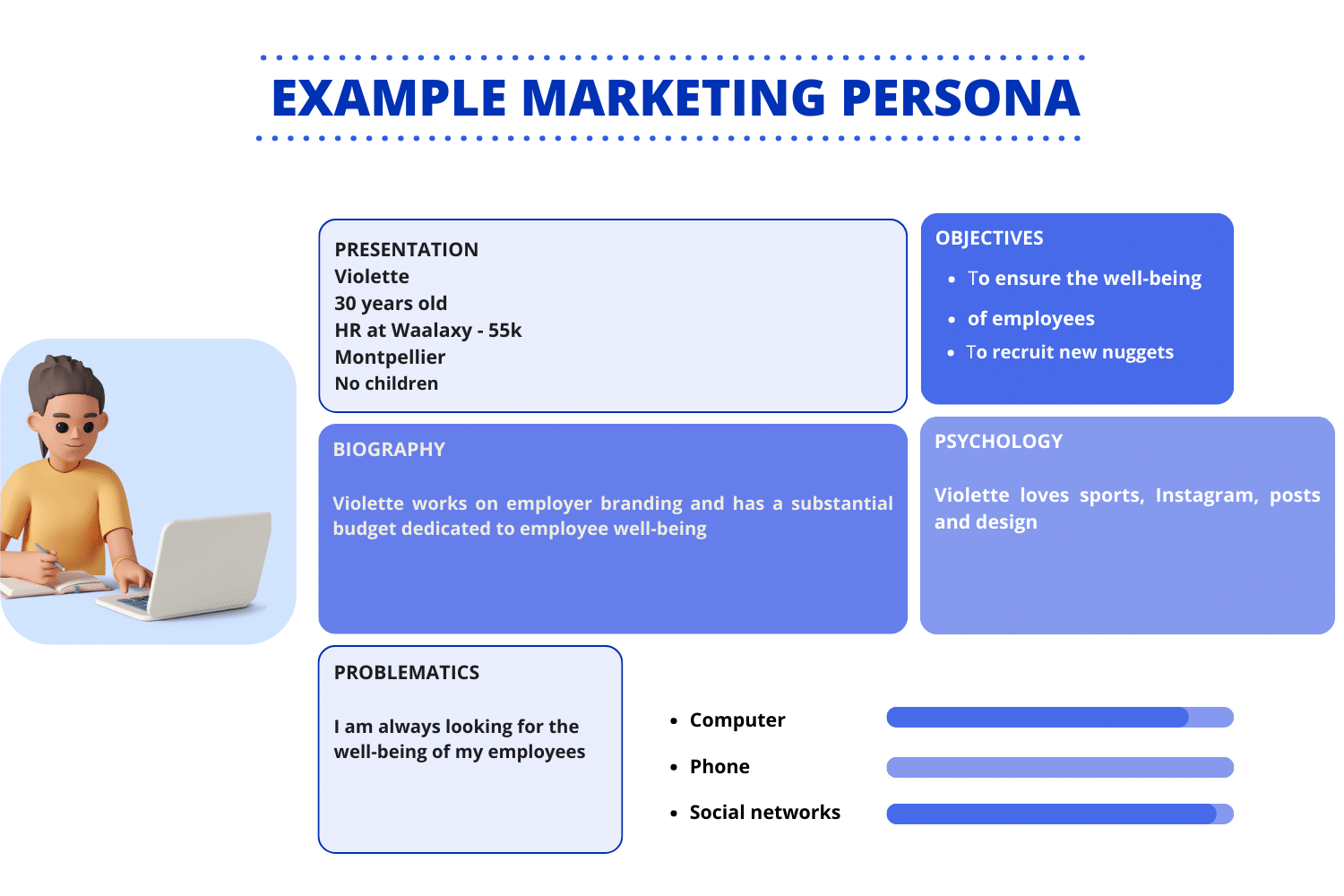
You might be asking yourself, “Okay but, how do you create an effective customer profile?” Well, you need to collect data about your customers through social networks, satisfaction surveys or even transaction data.
3) Personalize content and offers
Before last and not least, personalizing offers and content for each segment and customer profile, let me explain. 👀
To personalize your content and propositions, you can use techniques such as behavioral segmentation, data analysis or even message personalization. Also, you can use artificial intelligence technologies and machine learning to analyze data and thus, personalize content and propositions. ✨
4) Test the effectiveness of your campaigns
Finally, we come to the end, the last step is to test the effectiveness of your campaigns. 📈
This step is essential to understand what works and what doesn’t work in your marketing strategy. In order to test your campaigns, you can use techniques such as A/B testing, surveys and specific data analysis.
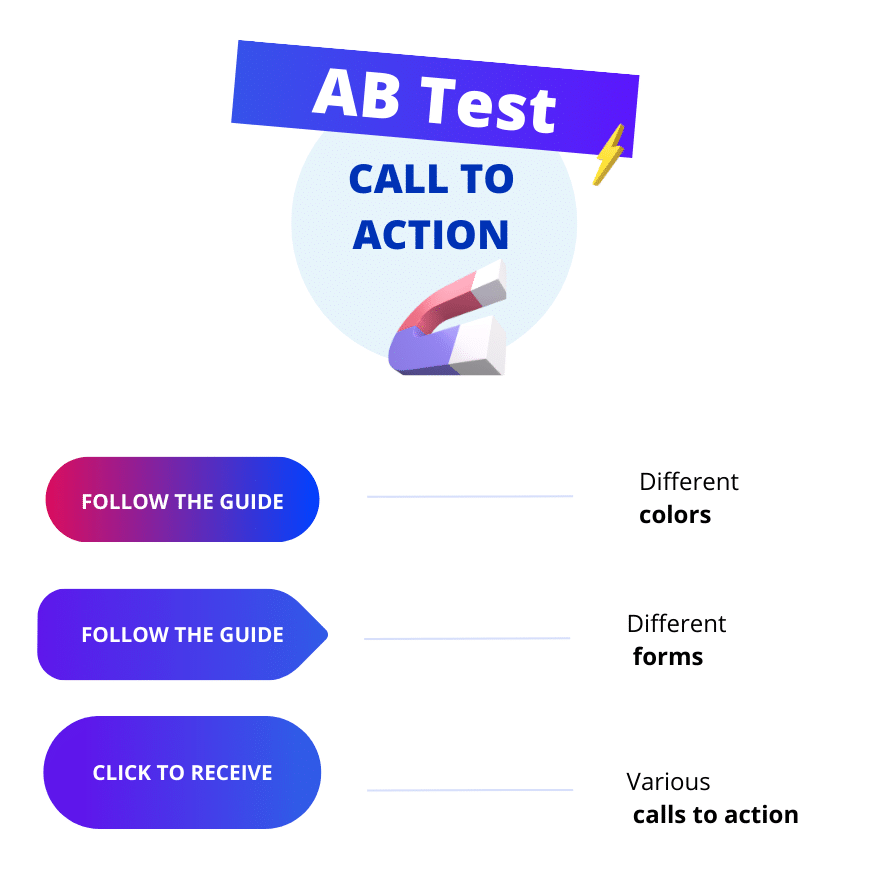
You can also use measurement tools such as Google Analytics to track the performance of your campaigns. 😎
How about a recap?
Marketing is an ever-changing field 📈 with new technologies, emerging trends, and most importantly, challenges emerging on a regular basis. If you want to be successful in this field, it’s essential to stay on top of the latest trends and best practices, allowing you to quickly adapt to these changes.
One-to-one marketing fits this reality perfectly, as it offers a personalized and targeted approach to reach consumers individually. 🎯
However, if you want to be successful with this strategy, you need to understand your customers’ needs and preferences, and will have the right data and technology in place to implement effective processes to personalize content and propositions.
Okay, so you get it, this type of marketing is powerful and effective, as long as you use it carefully and wisely! 🦋
Frequently asked questions
What are the 4 types of marketing?
There are 4 types of marketing, here they are:
- Direct marketing ➡️ reach potential customers individually, using channels such as phone, email or SMS.
- Digital marketing ➡️ using online channels to reach potential and existing customers. We find search engines technology, social networks, ecommerce website, blogs, online ads, emails, and videos.
- Marketing from content ➡️ create and share content that is useful and relevant to the target audience, such as blog posts, videos, podcasts, infographics and white papers.
- Relationship marketing ➡️ build and maintain long-term relationships with consumers by addressing their individual needs and preferences in the approach.
What is the relationship between direct marketing and one-to-one marketing?
Actually, they are both closely related (kind of like a pizza and an oven, after all) because they both focus on communication and direct interaction with customers. 💭 In reality, one-to-one marketing can be seen as the evolution of direct marketing.
To make it short (I hope you like Pokémon):
- Direct marketing: Pikachu. 🔥
- One-to-one marketing: Raichu. ⚡
Why should you do mix marketing?
Marketing mix is essential for any business that wants to succeed in the market. 🧠 Think of it this way: without good blended marketing, your business may be as useless as toothpaste without a toothbrush…
This one, composed in particular of the famous 4Ps (I promise, it’s serious), allows you to create an attractive and coherent offer, while being competitive in the market.
Which real company uses one-to-one marketing?
Today, many brands use this marketing. We find for example, Netflix or Spotify, let’s discover why:
- Netflix ➡️ recommends movies and series based on what customers will have already watched. Yes, we’ve all seen someone else’s account before, and we’ve all said to ourselves, “But, why don’t I have that?” Well, the recommendation algorithm analyzes customer needs and suggests similar content, which encourages customers to stay subscribed to the platform.
- Spotify ➡️ recommends personalized playlists based on the customer’s listening history and music preferences. This allows them to discover new artists and playlists that match their musical tastes.
That’s it, you now know all about how one to one marketing can help you. Thank you and see you soon! 👋🏼



